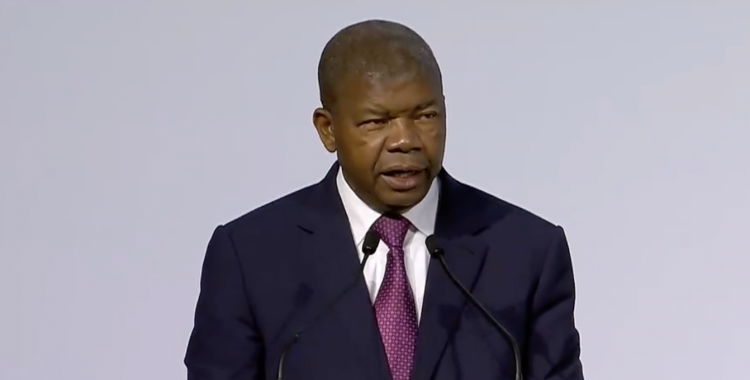"I could not fail to mention the great effort of cooperation that the CPLP [Community of Portuguese-Speaking Countries] Member States have been carrying out to assume a committed and interested role in the debate on issues related to the oceans, if we take into account the fact that we are all coastal and island countries", said João Lourenço when speaking in the plenary of the United Nations Ocean Conference, which started this Monday in Lisbon.
The head of state referred to initiatives such as the 'Blue Talks', debates held during the weeks leading up to the conference that began this Monday, focused on the protection of the oceans, as well as the Namibe Declaration, approved in the province with the the same name, which aims to create a Cooperation Platform for the Promotion of Sustainable Fishing and Combating Illegal, Undeclared and Unregulated Fishing, among the CPLP member states.
Angola currently assumes the rotating presidency of the Portuguese-speaking community, which includes eight more member states: Brazil, Cape Verde, Guinea-Bissau, Equatorial Guinea, Mozambique, Portugal, São Tomé and Príncipe and Timor-Leste.
In his speech, João Lourenço also highlighted the Angolan Government's initiatives to protect the oceans, which he classified as "an important source of wealth for the economies of the countries bathed by them" and said that they have always played "an important role in the mobility of peoples, in the interaction and integration of different cultures, religions, habits and customs of peoples and in commercial exchanges between nations".
Recalling that "the oceans constitute the largest biosphere on the planet and they are associated with a set of benefits for Humanity", the leader defended that it is necessary to act "with the utmost urgency" to find "solutions that reverse the current trend of pollution of seas and oceans and unrestrained exploitation of marine resources".
In this sense, he said, Luanda has integrated into its National Development Plan the planning of activities that take place at sea in order to boost the blue economy by reinforcing the supervision and regulation of the exploitation of marine resources.
Angola has also worked to expand the limits of its Exclusive Economic Zone, which would allow it "to start using and protecting the resources that are found in areas close to [its] coast and that have been the subject of dilapidation by fleets unlicensed foreign fisheries," he said.
The President also made the connection between the oceans and the protection of the environment in general, defending the need to combat climate change, which has "frightenedly increased the level of sea waters" and the number of cyclones, hurricanes and tsunamis in the Atlantic, in the Indian Ocean and the Pacific, causing "a high number of human casualties and considerable material damage on practically all continents".
"Angola has been taking significant steps in recent years to reduce the burning of fossil fuels for the production of electricity", said João Lourenço, referring to "ambitious projects for the production of photovoltaic energy in the center, south and east of the country", whose energy will be injected into the national grid this July, as well as a green hydrogen production project that has already taken its first steps in the country and whose export should start in 2024.
He also underlined the "great effort to qualify staff capable of helping the country to respond with the required effectiveness and efficiency" to issues related to the oceans and referred to "an important exercise" that Angola has carried out in partnership with the Union's Rise Africa Program European Union with a view to tackling the issue of worsening marine pollution.
He said that the country is paying special attention to the Wetlands, highlighting the "planting campaign, in eight months, of one million mangroves along the Angolan coast, carried out with the active participation of Angolan civil society, mainly from young people who are dedicated to environmental causes".







